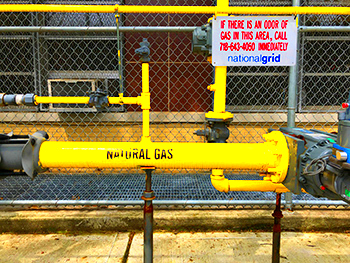What You Need to Know About Local Law 152 Exemptions
Local Law 152 was introduced to enhance safety regulations, particularly focusing on gas piping inspections in buildings across New York City. However, not every building owner is subject to the law’s requirements. To accommodate various circumstances, certain exemptions are available under Local Law 152. These exemptions are designed to relieve specific property owners from the mandate to conduct periodic inspections. Understanding these exemptions is key to determining if your property qualifies for a waiver.
Understanding the Purpose of Local Law 152
Local Law 152 aims to improve public safety by ensuring that gas lines in buildings are regularly inspected for leaks or other potential hazards. The law is a response to incidents in the past where faulty gas lines led to serious accidents. Its primary goal is to prevent gas-related risks by requiring periodic inspections by certified professionals. These inspections are meant to identify any issues early and ensure compliance with the city’s safety regulations.
For most buildings, inspections are required every four years. However, some properties may be exempt, depending on their size, usage, or other factors. Understanding whether your property is subject to these inspections or qualifies for an exemption is crucial in complying with the law.
Who Qualifies for Local Law 152 Exemptions?
Not all property owners need to adhere to the strict inspection timelines set forth by Local Law 152. The following types of buildings may qualify for an exemption:
- One- and two-family homes: Residential buildings with one or two families generally do not fall under the inspection requirements.
- Buildings with no gas service: If your building has no gas piping, you may be exempt from the gas inspection requirements.
- New constructions: Recently constructed buildings or those with recently installed gas piping may also be exempt, provided that the systems are new and certified.
To confirm your eligibility for an exemption, it is important to consult with a legal expert or your building’s management to ensure that all conditions are met.
Types of Local Law 152 Exemptions Available
Local Law 152 offers several types of exemptions for building owners who meet specific criteria. These exemptions are intended to provide relief from the mandated gas inspections for those who can demonstrate that their buildings are either low-risk or in special circumstances. Below are the main types of exemptions available:
- One- and Two-Family Homes: Buildings classified as one- or two-family residences are often exempt from the inspection requirements, as they typically pose a lower risk compared to larger, multi-family units.
- Non-Gas Buildings: If your building does not have any gas service or piping, you can be exempted from the law since gas inspections would not be applicable.
- New Constructions: Recently constructed buildings or those with newly installed gas systems that have been inspected and certified within a certain timeframe may qualify for exemption. This is because their systems are considered up-to-date and in compliance with the latest safety standards.
- Vacant Buildings: If your building is currently vacant and unoccupied, you may be able to avoid the inspection requirement until the property becomes occupied again.
Each exemption type has its own specific requirements, and it’s important to review these carefully to ensure that your property qualifies. Consulting with a legal professional or your property management team can help clarify which exemptions may apply to you.
How to Apply for a Local Law 152 Exemption
Applying for a Local Law 152 exemption can seem like a daunting task, but the process is generally straightforward if you follow the correct steps. Here’s a simple guide on how to get started:
- Determine Your Eligibility: Before applying, confirm that your building qualifies for one of the available exemptions. Review the types of exemptions and consult a professional if needed.
- Complete the Necessary Forms: The New York City Department of Buildings (DOB) requires specific documentation to process your exemption request. Ensure that you fill out all required forms accurately.
- Submit Supporting Documents: Depending on your exemption type, you may need to provide additional paperwork, such as gas piping certifications, proof of building type, or occupancy details.
- File with the DOB: Once your application is complete, submit it to the Department of Buildings either online or in person. Be sure to follow up on the status of your application.
It’s also recommended to keep copies of all forms and submissions for your records. If your exemption is approved, you will be notified, and your building will not be required to undergo a gas inspection for that period.
Common Challenges in Securing Local Law 152 Exemptions
While applying for a Local Law 152 exemption can seem straightforward, many property owners face challenges throughout the process. Understanding these potential obstacles ahead of time can help you navigate the system more smoothly. Here are some of the most common issues:
- Incomplete Documentation: One of the biggest hurdles is failing to provide all required documentation. Missing forms or incorrect information can delay or even disqualify your exemption request.
- Misinterpretation of Eligibility: Building owners often misinterpret the eligibility requirements for exemptions. For example, assuming that a building with minimal gas usage qualifies when, in fact, it does not.
- Changes in Building Status: A change in your building’s status—like transitioning from vacant to occupied—could affect your exemption eligibility. Be sure to keep the DOB informed of any changes to avoid penalties.
- Lengthy Approval Process: Processing times can vary, and many applicants experience delays in getting their exemptions approved. Patience and timely follow-ups are key to ensuring the process moves along.
To avoid these challenges, make sure all your paperwork is in order and consult with an expert to ensure you fully meet the exemption criteria.
Ensuring Compliance After Receiving an Exemption
Receiving a Local Law 152 exemption is not the end of the process—building owners still need to ensure they remain in compliance with any applicable regulations. While you may be exempt from gas piping inspections for a specific period, there are still responsibilities to keep in mind to avoid future issues.
Here’s what you should do after receiving an exemption:
- Keep Records Updated: It’s essential to maintain accurate and updated records of your exemption approval. In case of any audits or future inspections, having these documents readily available will save time and stress.
- Monitor Building Status: If your building’s status changes (such as moving from vacant to occupied), you may need to reapply for an exemption or undergo an inspection. Always notify the Department of Buildings of any significant changes.
- Plan for Future Inspections: Even with an exemption, your building may eventually need to comply with inspection requirements. Keep track of any future deadlines so that you’re not caught off-guard when your exemption period ends.
- Stay Informed on Law Changes: Local Law 152, like many regulations, could change over time. Keep yourself informed about any updates to ensure continued compliance with the law.
Compliance is an ongoing process, so staying organized and proactive is key to avoiding penalties or additional inspections in the future.
FAQs About Local Law 152 Exemptions
Here are some common questions about Local Law 152 exemptions to help clarify any uncertainties:
- Do all buildings need to comply with Local Law 152?
Not all buildings are subject to gas piping inspections. Exemptions are available for certain building types, such as one- and two-family homes, or buildings without gas service. - How often do I need to reapply for an exemption?
Exemptions are generally granted for a specific period, depending on the type. You may need to reapply when your exemption expires or if your building’s status changes. - What happens if I don’t apply for an exemption?
Failing to either apply for an exemption or undergo required inspections can result in penalties, fines, and non-compliance notices from the Department of Buildings. - Can I appeal if my exemption application is denied?
Yes, if your exemption application is denied, you can appeal the decision. It’s a good idea to consult with a legal expert to guide you through the appeals process.
Understanding these FAQs will help you navigate the exemption process more smoothly and ensure that you comply with all necessary regulations.
Conclusion and Final Thoughts on Local Law 152 Exemptions
Local Law 152 is an important regulation designed to keep buildings safe by ensuring regular gas piping inspections. However, for property owners who meet certain criteria, exemptions provide a way to avoid the costs and logistics of these inspections. It’s crucial to understand whether your property qualifies for an exemption and how to maintain compliance once you receive one.
By staying informed, keeping your records up to date, and reapplying when necessary, you can avoid penalties and ensure that your property remains in good standing with the Department of Buildings. If you’re unsure about any part of the process, seeking legal advice can provide clarity and peace of mind.


